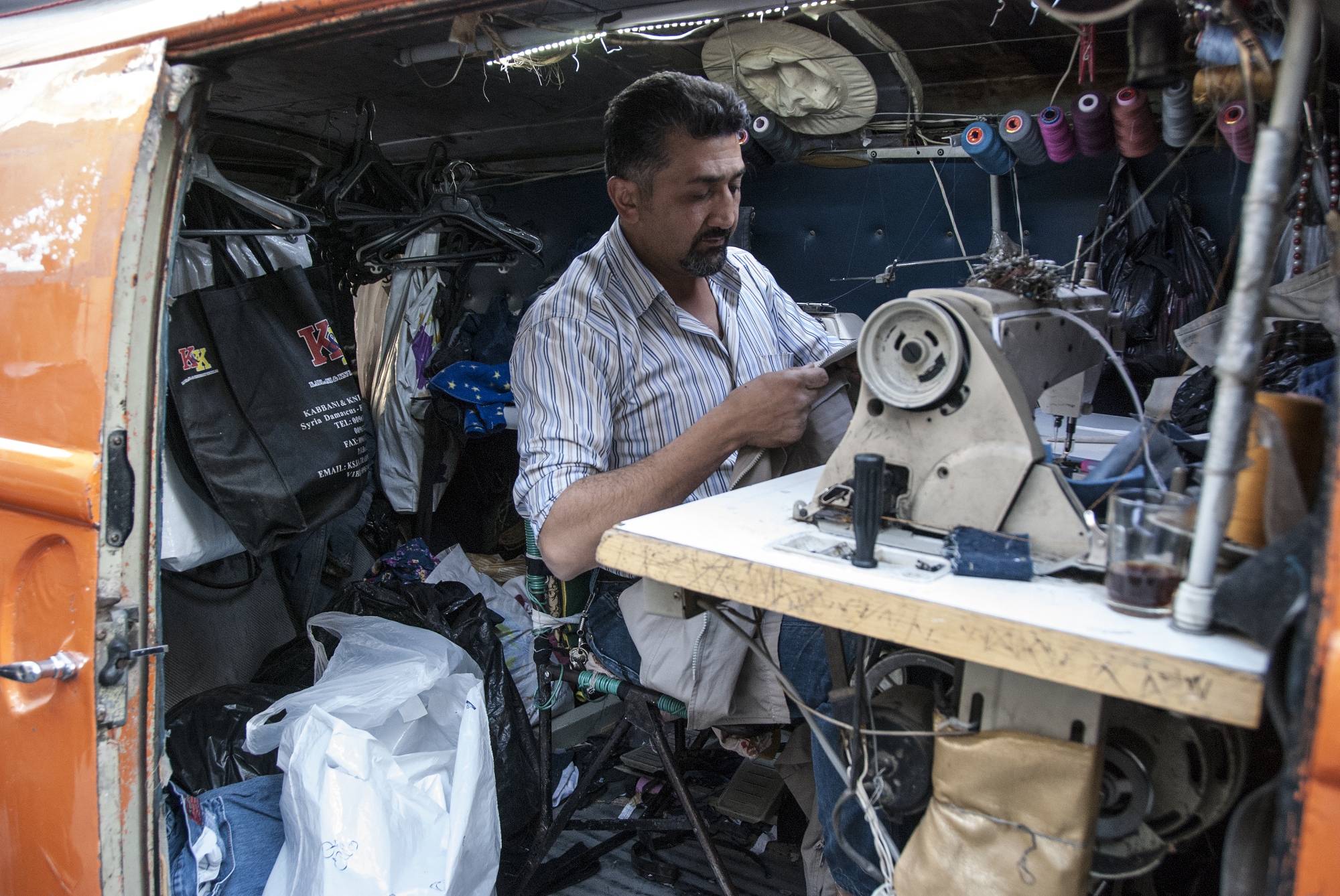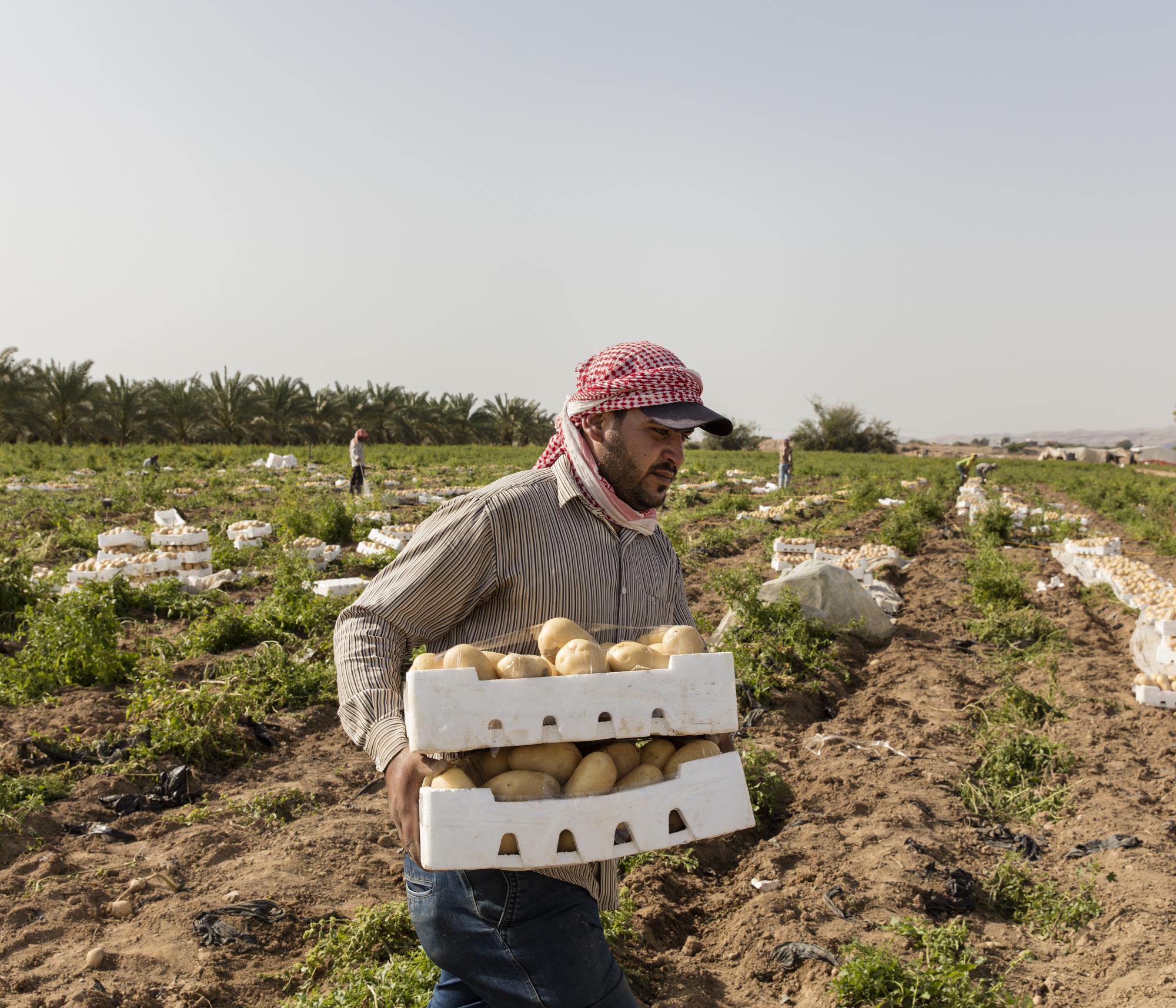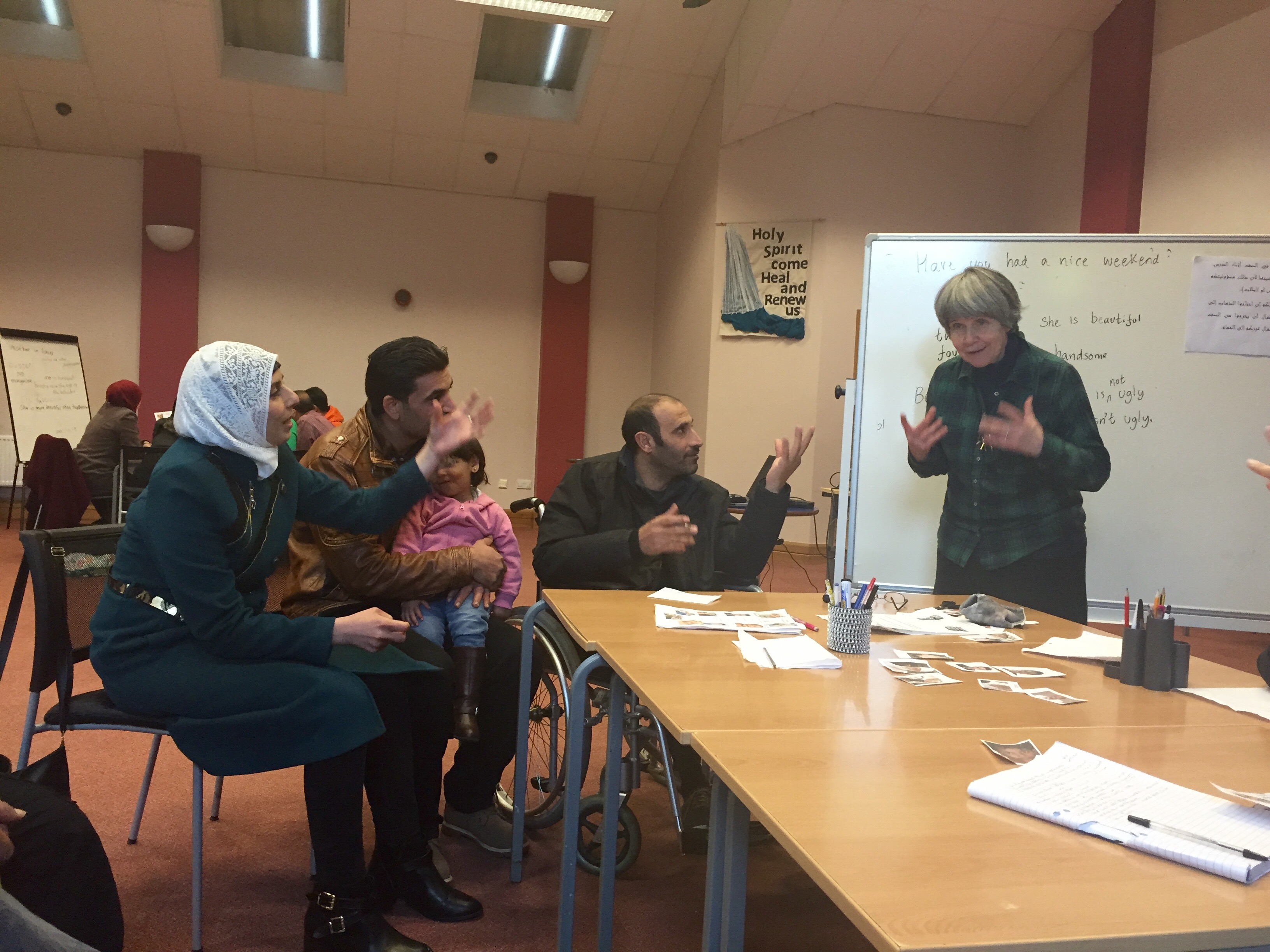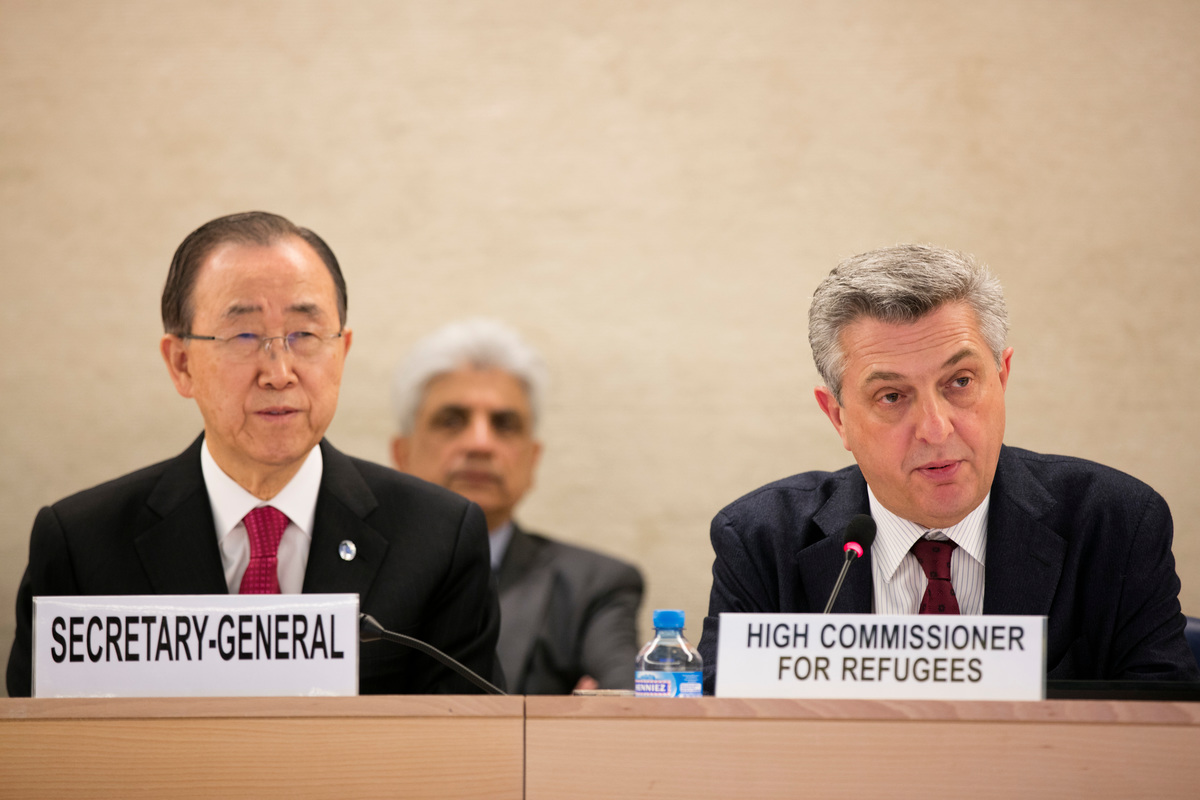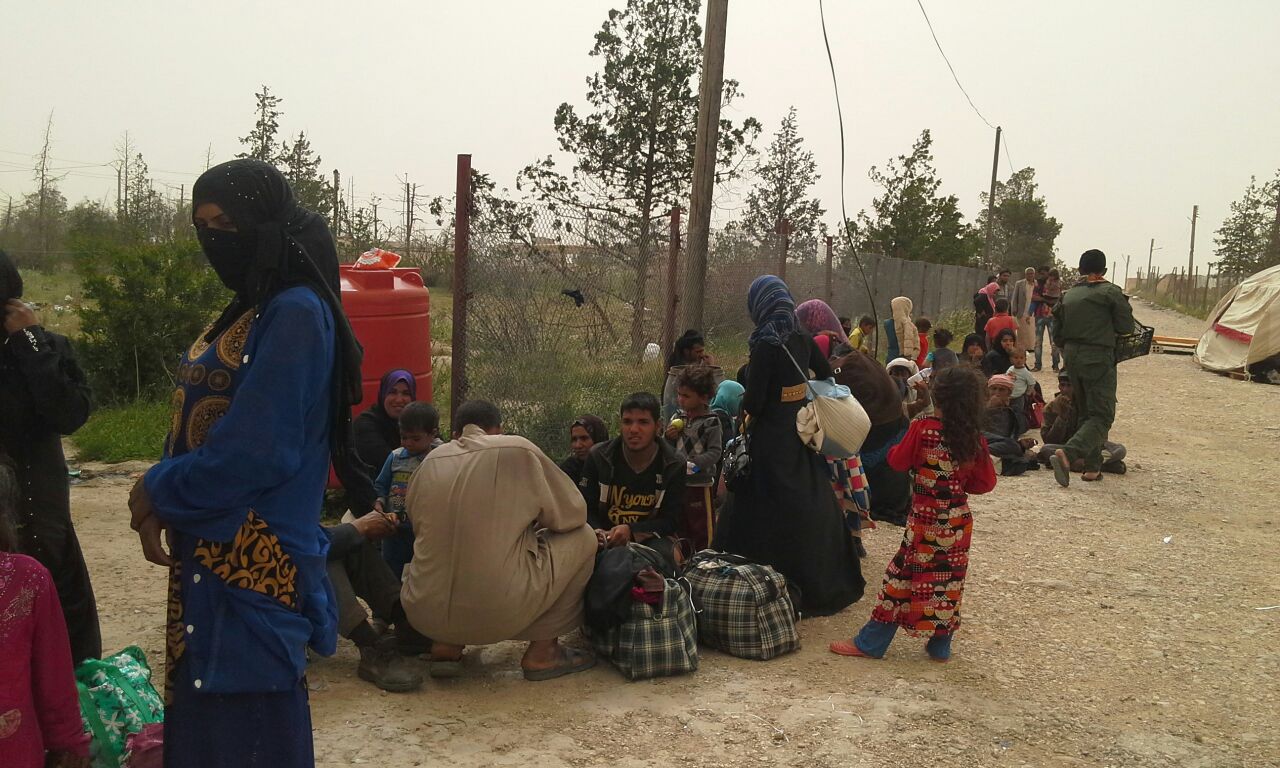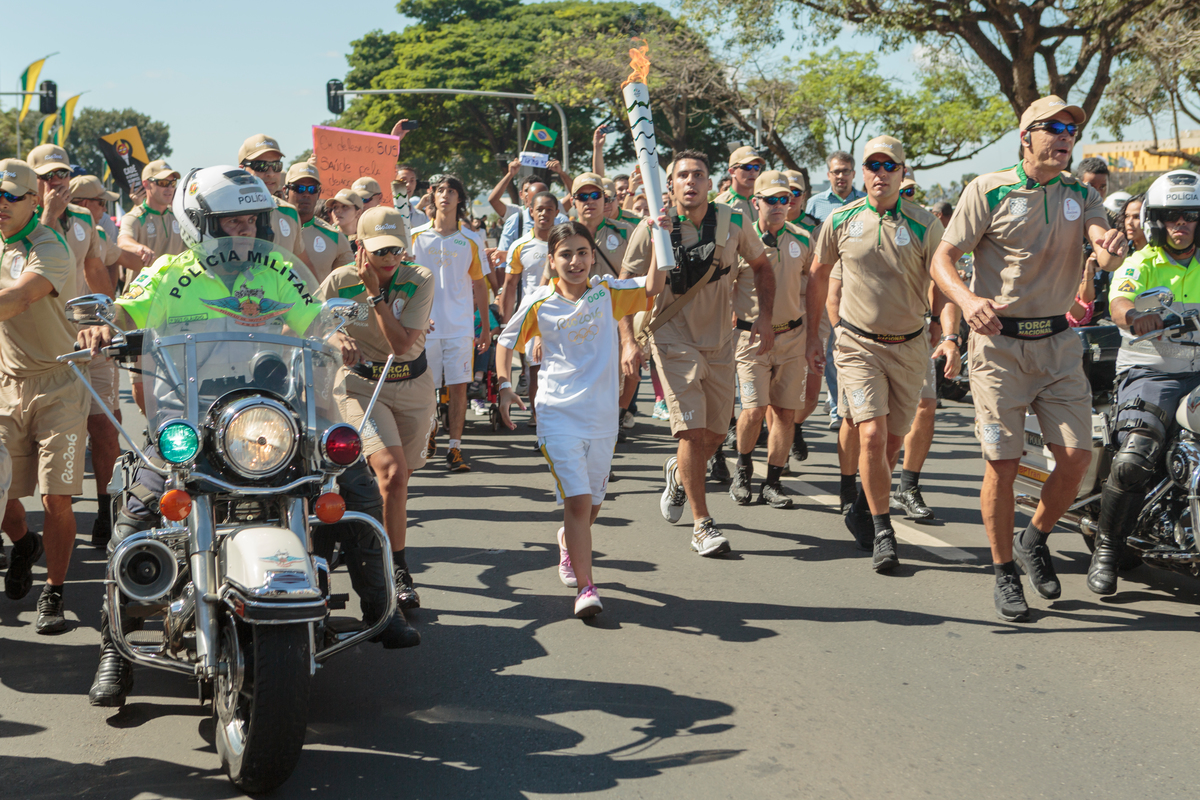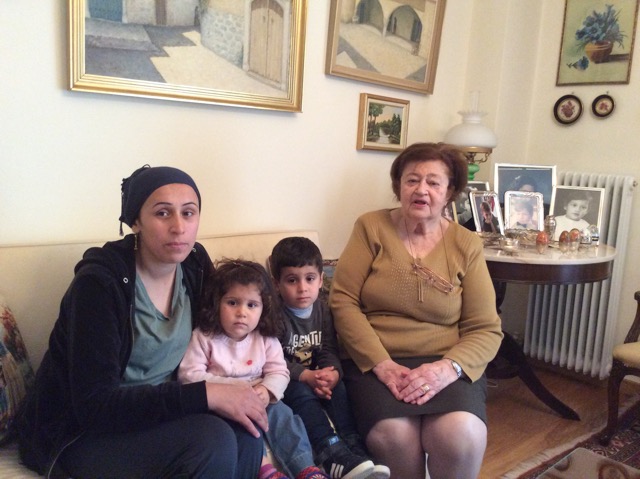UNHCR slashes waiting time, clears backlog of Syrian registrations in Jordan
UNHCR slashes waiting time, clears backlog of Syrian registrations in Jordan

IRBID, Jordan, October 3 (UNHCR) - The time that Syrians need to register as refugees in Jordan has been slashed from up to eight months to zero after the UN refugee agency rolled out new technology, added staff and expanded its facilities to eliminate the backlog.
A year ago when a Syrian refugee approached UNHCR's registration centres in Jordan's urban areas like Irbid, about 20 kilometres from the Syrian border, refugees often had to wait up to 12 months for an appointment.
Earlier this year, when sometimes more than 2,000 Syrian refugees flooded into Jordan daily, the number awaiting registration was stretching the UN refugee agency's capacity to the limits, requiring staff to work multiple shifts every day while taxing the patience of exhausted refugees.
In response, UNHCR prioritized registration systems and staffing needs to address the unacceptable delays. But by July 2013, there were still more than 60,000 refugees waiting to be registered.
Thanks to funding from ECHO, humanitarian aid arm of the European Commission, and the governments of Japan, Netherlands and the United Kingdom, registration as a refugee and the renewal of documents are now completed within hours at Jordan's urban refugee registration facilities.
In the last week, UNHCR has cleared the backlog of urban Syrian refugees at northern Jordan's Irbid registration centre. UNHCR staff at Irbid are now able to process 1,300 individual refugees a day seeking documentation.
"As of the 25th September we have conquered our backlog and registered 100,000 new arrivals in seven months when we were originally aiming to register 63,000 by the end of the year," said Naseer Al Nabilsi, UNHCR officer-in-charge at Irbid's registration centre. "A devoted team of six registration officers worked long hours every day since February."
Irbid is also the first location worldwide where UNHCR introduced biometric iris scanning to assist in refugee registration. The agency unveiled the new technology in August; it poses no risks to the confidentiality of refugees and prevents double registration.
Moreover, UNHCR staff now collect more detailed information on relatives, education and profession. This enhanced data will help UNHCR address both immediate and longer- term protection needs.
The Anmar Hmoud Registration Centre in Amman's Khalda neighbournood, which UNHCR opened in the summer also processes refugees within hours of their arrival. The new centre - shaded and spacious - can process up to 3,000 refugees daily, triple the capacity of UNHCR's previous facility.
UNHCR also expects the new, fast processing equipment to lower the previous no-show rate of approximately 10 per cent as word spreads about the speed of registration. The agency has already seen a noticeable rise in the number of Syrian refugees requesting appointments.
"We think [the rise in the number of refugees coming forward for registration] is related to the start of the school year," said Berween Younes, registration officer in Khalda. "They know by now that school administrations ask for the registration document."
Syrian refugees previously had to return after their initial registration and wait another four to six hours outside UNHCR's main Amman office to receive their documents. Now they need to wait a maximum of 50 minutes at the Anmar Hmod Centre before leaving with all the documentation needed to ensure their families are properly assisted and protected.
"It's a lot more organized and efficient," says 86-year-old Amna, a refugee who endured the previous system's delays. Adding her son to her file had taken more than a year as her son's appointment was postponed three times.
The improvement has also helped UNHCR staff. Niveen Majthoub, with 12 years' experience working with the refugee agency in humanitarian crises, said the new site made it easier to identify vulnerable refugees who need priority treatment.
"You can actually see them sitting in a large hall, rather than crammed on top of each other in front of the gate," she said. "Since it is a more spacious area, we were able to hire more staff who can talk to the refugees at the reception area and spot those that need earlier appointments."
Khaled Shafagoj, an interviewer at the centre, said: "It has become a one-stop shop where the refugee can be referred to different sections, like legal counselling and community services, during the same visit.
"If I see that the refugee I am registering needs an assessment by community services, we can do this on the spot, rather than have the refugee go back and forth on multiple visits," he said.
With an efficient registration centre in place, UNHCR is now reaching out to those who can't visit it. A mobile registration unit caters to refugees in remote locations, registers them and issues documents on the spot.
By Reem Alsalem and Frauke Riller in Amman, Jordan

